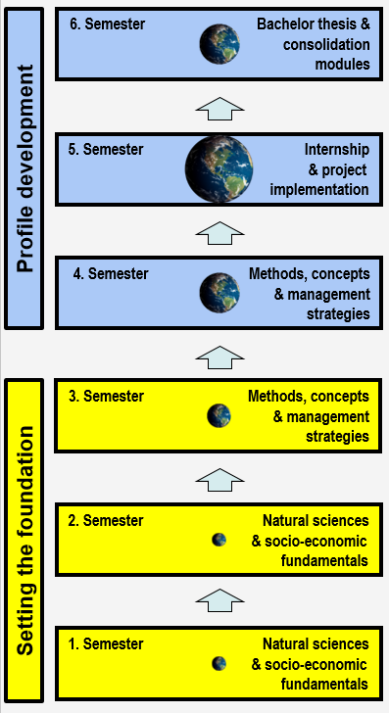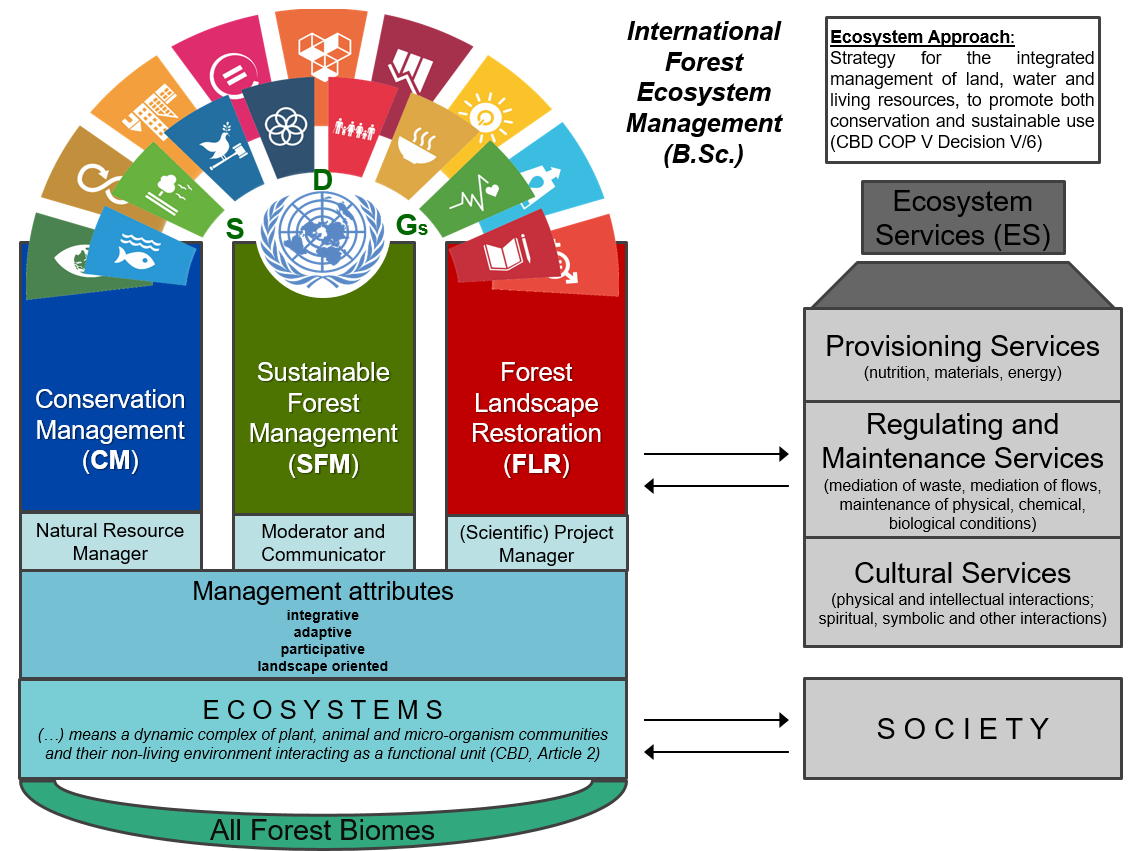Aim of the study programme
The aim of International Forest Ecosystem Management (IFEM) (B.Sc.) is the education of ecosystem managers, who understand the forests of the world as ecosystems and are qualified to conserve and use the forests according to the principles of sustainable forestry (ecosystem approach).
In order to achieve this aim, we train experts with an outstanding forestecological and socio-economic knowledge as well as practice-orientated management skills and international experience. The graduates shall contribute to the realisation of international resolutions and conventions for the conservation and sustainable use of the natural resources of our planet.
Fundamentals
The forests of our world are of fundamental importance for the stability and functioning of our global ecosystems, and thus, for the living conditions of our society. Within the context of sustainable global development, it is our duty to conserve the forests of the world for future generations and to sustainably manage their diverse ecological, economic, and social functions.
The past two decades have given rise to a wide variety of occupational areas within international forestry. As a result, job-specifications have changed considerably: the occupational image of the forest engineer who is mostly interested in economic sustainability, has given way to that of the holistic ecosystem manager who is able to integrate forest conservation and silvicultural practices into a comprehensive land use programme. In addition, ecosystem managers have to be able to realise both these goals, and plan in conjunction with a variety of land-users and other stakeholders. Of further significance is a sound knowledge of the various political agreements and mechanisms that aim for the conservation of the different forest functions.
The term Forest Ecosystem Management (FEM) strives for a systematic appreciation of the factors that determine the structures, processes, and functions of forest ecosystems. Beside the scientific-ecological connections, they include the interactions of the forest systems with the human societies that affect and use them. Based upon this, concrete management approaches have to be developed. However, at an international level the aim is not always the sustainable use of forests. In many parts of the world, forests have to compete with forms of land-use that are often more profitable in the short run. The result of increasing utilization pressure and progressive deforestation is the dramatic loss of healthy and functional forest ecosystems and of their biological diversity.
Structure
The study programme International Forest Ecosystem Management (IFEM) was introduced as one of the first of its kind in 1998. It was awarded a seal of approval by the DAAD and the HRK and was accredited as a Bachelor of Science study programme in 2002. Since then, it has been developed systematically and strategically, keeping abreast of new developments within the field of ecosystem management. The study programme has been designed to address the ever growing importance of the ecosystem approach and the permanently growing challenge to preserve our forests.

All full time students (German citizens) have to go abroad to conduct their internship on forest ecosystem related topics.
​​
- 180 ECTS credits (30 credits per term)
- Modules are partly conducted in English (60-70%) and German (30-40%) language
Conceptional framework
A solid ecological and forest-related education is supplemented with lectures in the field of socio-economics, nature conservation, law and management (e.g. adaptive management practices).

​​​Strategic Partner Universities

Further information
Job opportunities
Ecosystem management and the principles of sustainable forestry are undergoing a period of unprecedented change and synergy, and it is exactly this that makes our study programme so dynamic. The IFEM study programme is one of very few rather unique international study programmes of its kind; comparable study programs can be found at the universities of e.g.: York University, UK; University of New Brunswick, Canada; Iowa State University, USA.
Accordingly, the graduates of IFEM are able to work in many diverse occupational areas. They are particularly well suited to work within projects concerning: Sustainable forestry and conservation management.
Have a look at some success stories of some HNE alumni here.










